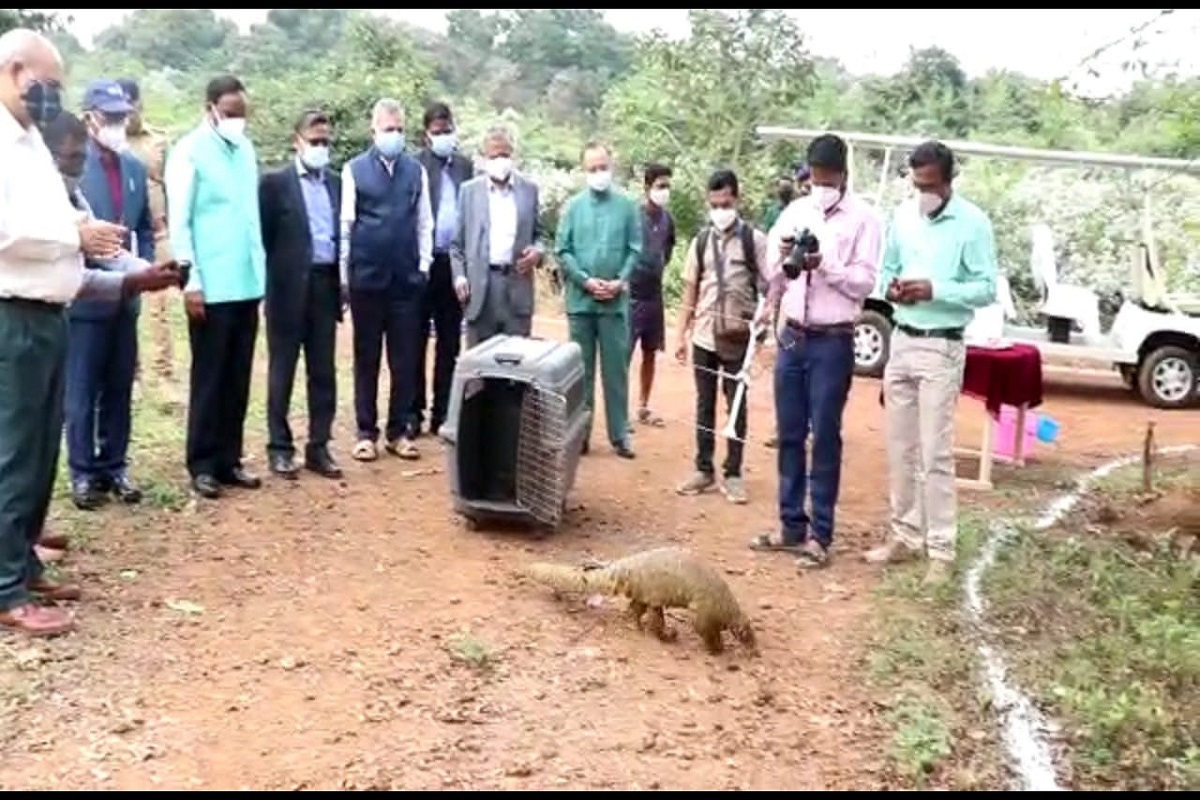The Odisha forest department on Wednesday successfully conducted the radio-tagging of an Indian pangolin in the wild environs of Nandankanan Zoological Park on the outskirts of Bhubaneswar.
“This is the second case of successful rehabilitation of the species where the released individuals are monitored in the wild using telemetry,” said Sanjeet Kumar, Deputy Director, Nandankanan Zoological Park.
Advertisement
The release of this nature is the second such endeavor in India where transmitter-tagged Indian Pangolin is released back to the wild. It is expected that the radio-tagged pangolin will reveal valuable information on ecology, dispersal pattern, home range and survival of this threatened species, Kumar informed.
The male pangolin that was retrieved from Paralakhemundi forest division on 28 November was received at the Nandankanan zoo for treatment. After the required healthcare, screening of parasites and diseases and completion of one-month quarantine period, the pangolin was found suitable for release in the wild.
It has gained a weight of 780 grams during the quarantine period and now weighs at 14.740 kilogram. It is exhibiting normal behavior.
It is fitted with a Very High Frequency (VHF) radio transmitter weighing 0.5% of its body weight procured from Advanced Telemetry Systems specialized in Radio telemetry instruments. Tracking of the pangolin will be done using Yagi antenna and receiver during post-release monitoring, he said.
Indian Pangolin, the largest of the eight pangolin species live in burrows and feed on ants and termites. Hardly anything is known regarding their ecology and behavior in the wild. NZP incidentally houses the lone conservation centre for the Indian Pangolins in the world.
The centre was established in 2009 to standardize the protocol for housing and husbandry of these endangered species and has successfully bred ten species in captivity.
The Pangolins are the most illegally traded mammals in the world. This has resulted in massive seizure of both pangolin scale and live species. However the availability of information on their rehabilitation protocol is very limited. To standardize the rehabilitation protocol for the rescued pangolins, a radio-tagged Indian Pangolin was released in the wild on Wednesday, the officials added.









